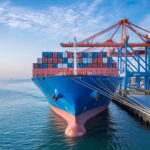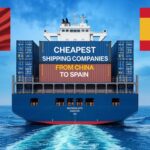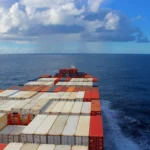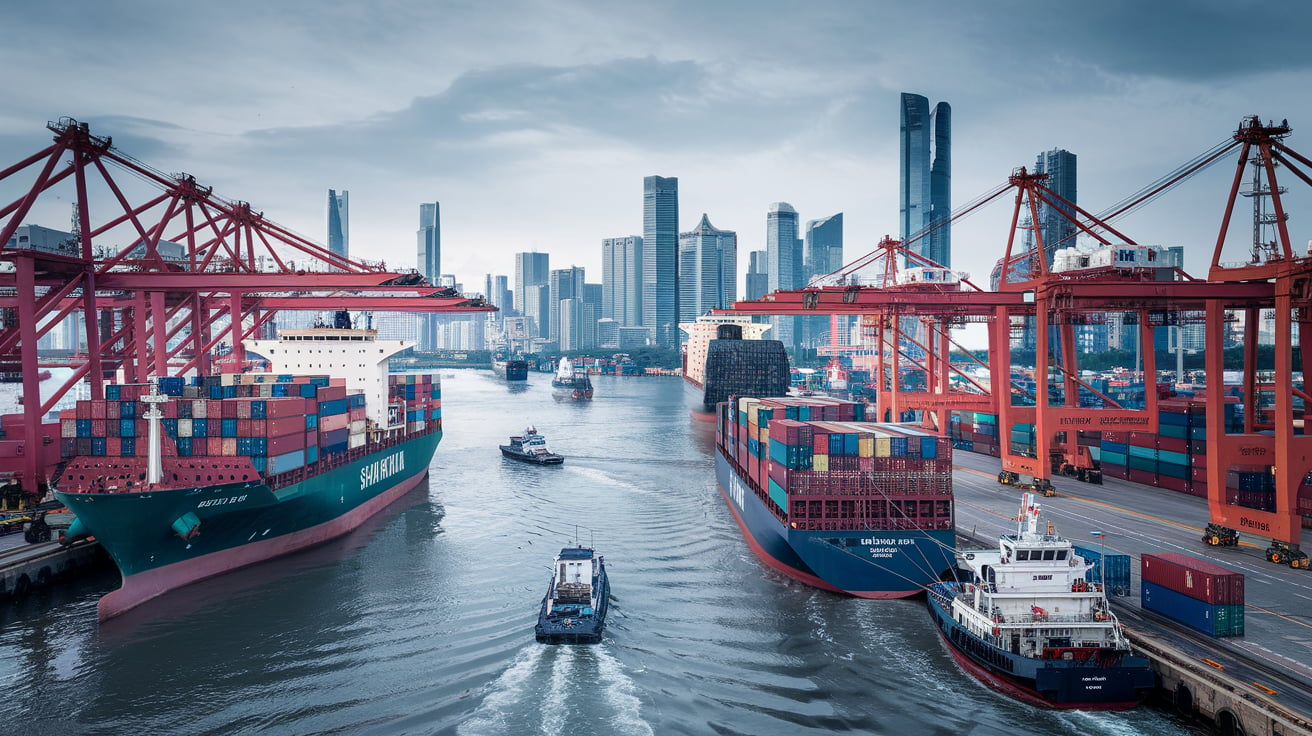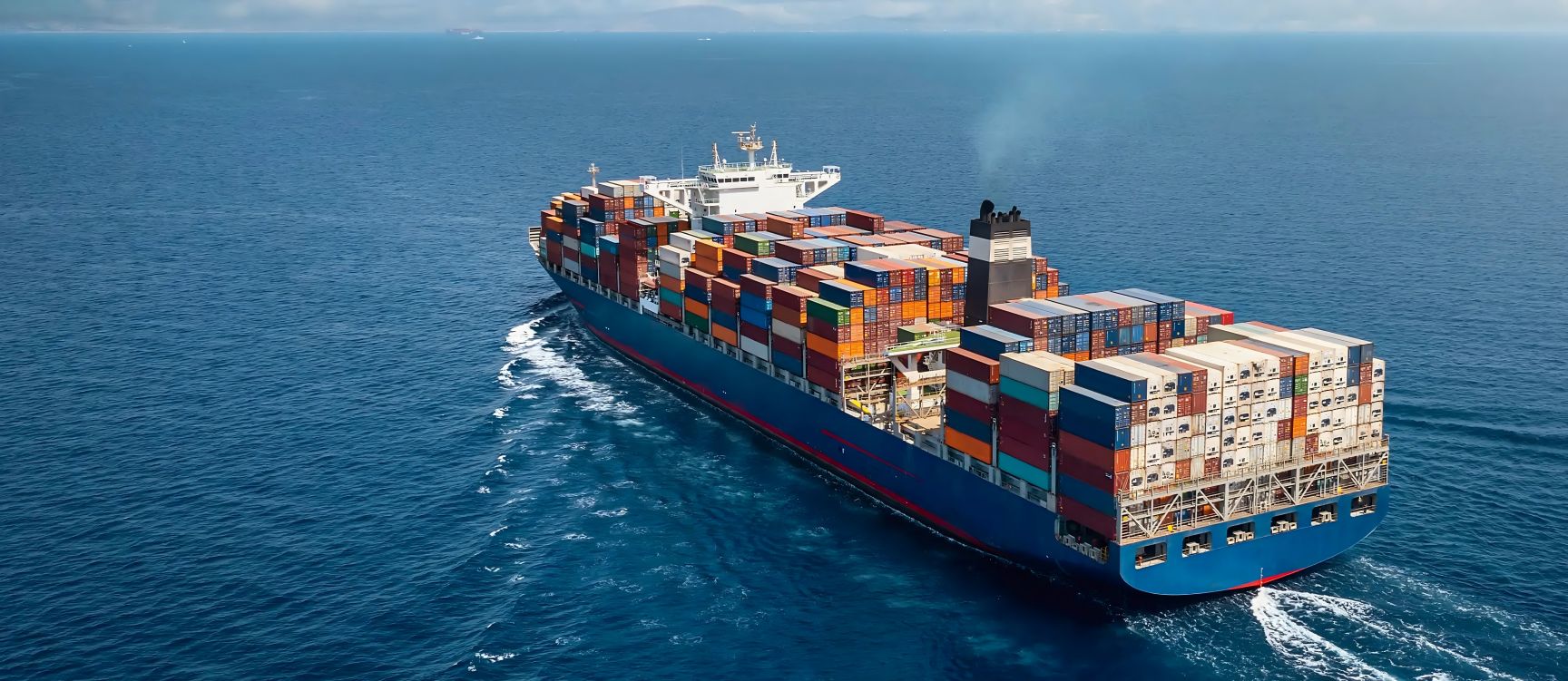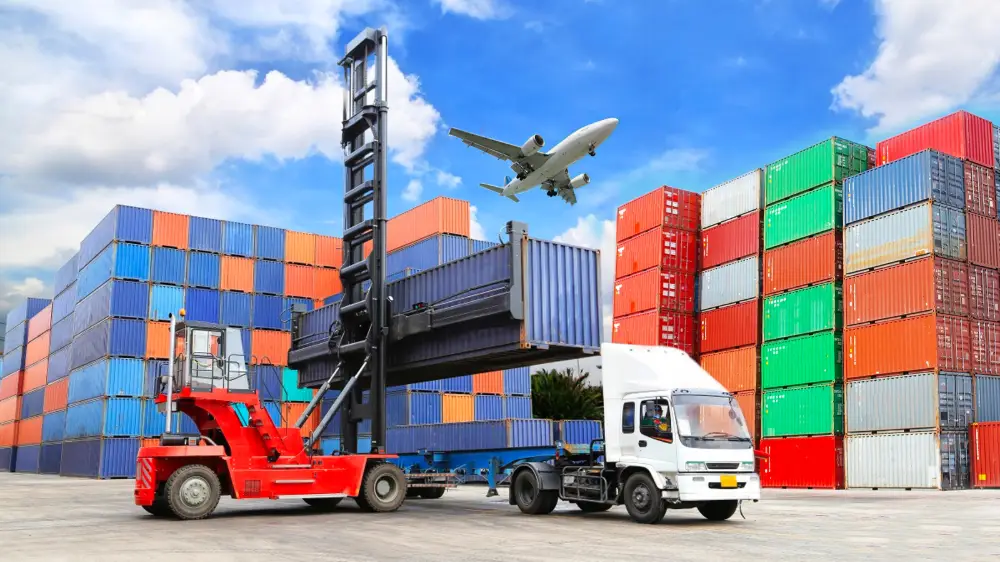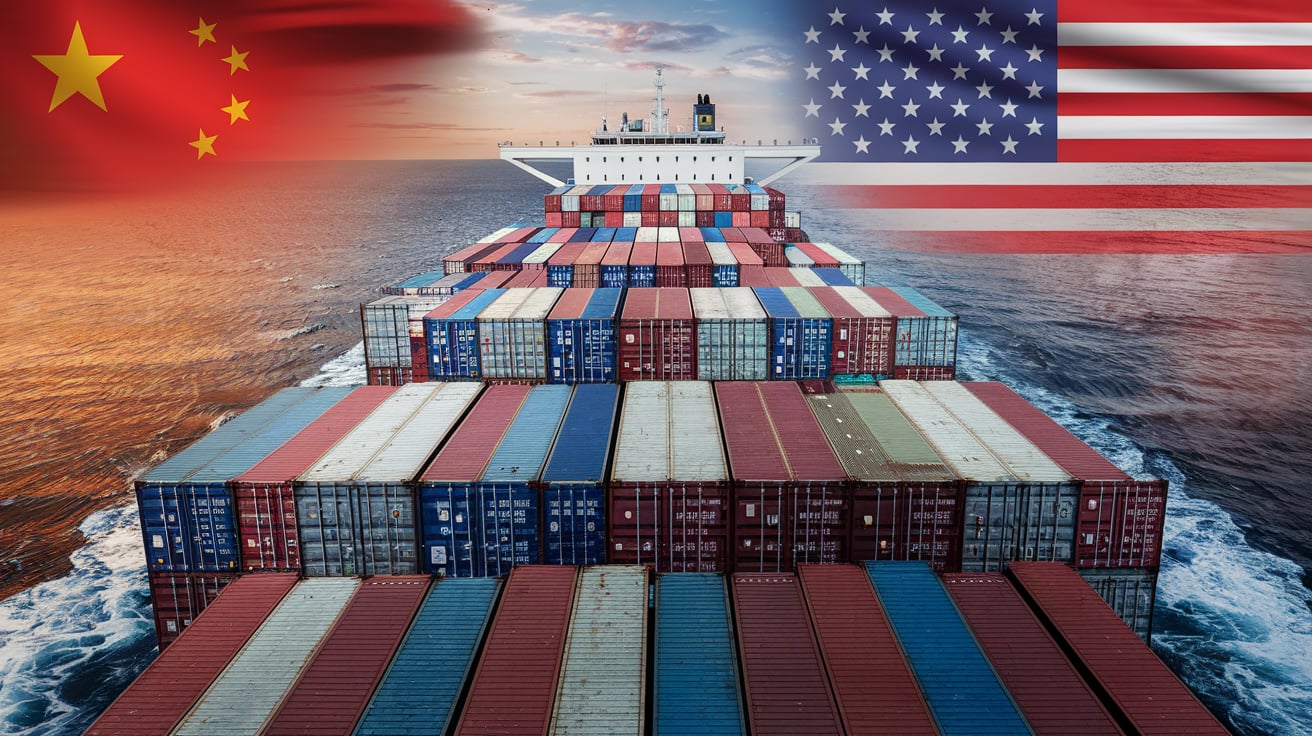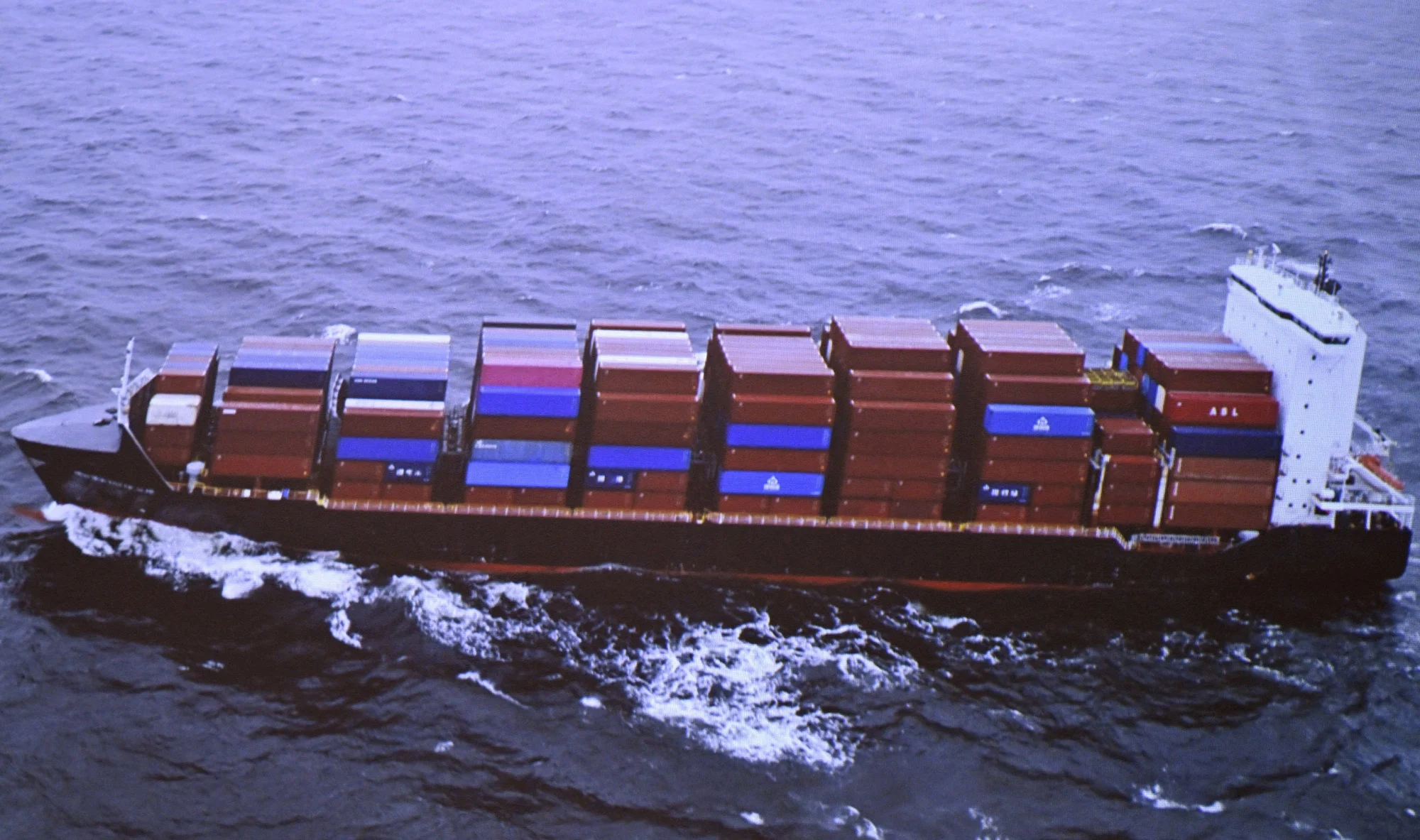When it comes to importing goods from China to Indonesia, navigating the complex world of shipping can be daunting. With a variety of shipping methods available—ranging from air freight and sea freight to express delivery services and door-to-door shipping—choosing the right option for your needs is crucial. This comprehensive guide will help you understand the various shipping options, compare their costs and transit times, and highlight the key factors to consider when selecting a shipping company. Whether you’re a small business or a large importer, our insights will equip you with the knowledge needed to make informed decisions and ultimately save on shipping costs while ensuring timely delivery.
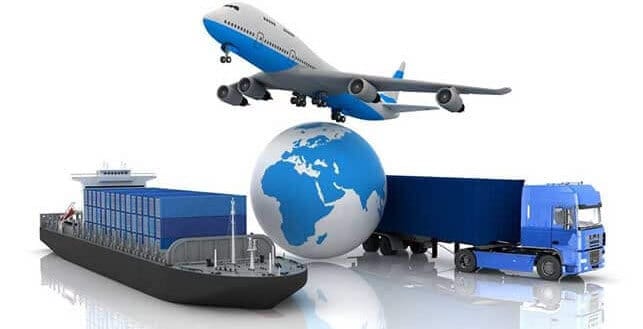
Overview of Shipping Options from China to Indonesia
When engaging in international trade, selecting the right shipping option is crucial for ensuring timely delivery and cost-effectiveness. This is particularly true for businesses importing goods from China to Indonesia, a growing market with increasing trade potential. Below, we examine the various shipping methods available, including air freight, sea freight, express delivery services, and door-to-door shipping.
Air Freight vs Sea Freight
Air Freight is often the preferred choice for businesses that require rapid delivery. This method offers the advantage of significantly reduced transit times, typically ranging from 1 to 3 days. However, this speed comes at a premium, making air freight more expensive compared to sea freight.
Sea Freight, on the other hand, is more suitable for bulk shipments and larger cargo loads. Although transit times can vary from 14 to 30 days depending on the shipping route and season, sea freight generally offers lower rates, making it an attractive option for cost-conscious businesses.
| Shipping Method | Estimated Transit Time | Typical Cost Range per kg | Ideal For |
|---|---|---|---|
| Air Freight | 1-3 days | $5-$10 | Urgent shipments, small items |
| Sea Freight | 14-30 days | $0.5-$3 | Bulk shipments, cost-effective solutions |
Express Delivery Services
Express delivery services are designed for time-sensitive shipments. Companies such as DHL, FedEx, and UPS provide expedited shipping for smaller packages. Delivery times can be as fast as 24-48 hours, albeit at higher costs compared to standard air freight. This service is particularly beneficial for companies needing to send urgent documents or samples to Indonesia.
Door-to-Door Shipping
Door-to-door shipping is a comprehensive service that encompasses the entire logistics process. This option, offered by freight forwarders like Dantful International Logistics, involves picking up cargo from the seller’s location in China and delivering it directly to the buyer’s destination in Indonesia. This service often includes customs clearance, documentation, and insurance, making it ideal for traders seeking a hassle-free experience.
You may be interested in the following related articles:
- Shipping From China To Vietnam
- Shipping From China To Thailand
- Shipping From China To South Korea
- Shipping From China To Philipines
- Shipping From China To Pakistan
- Shipping From China To Japan
- Shipping From China To Indonesia
- Shipping From China To Singapore
- Shipping From China To Malaysia
Factors to Consider When Choosing a Shipping Company
Selecting the right shipping company is crucial for ensuring the successful import of goods from China to Indonesia. Here are several factors to take into account:
Shipping Costs and Rates
Cost is often a primary concern for businesses. It is essential to evaluate the shipping rates offered by different companies and whether they fit your budget. Some companies may have hidden fees or additional surcharges, so ensure you obtain a comprehensive quote before making a decision.
Transit Times
Different shipping methods come with varying transit times. Businesses must assess their urgency and choose a shipping option that aligns with their timeline. For instance, if you can afford to wait, sea freight may be more suitable; however, if rapid delivery is required, air freight or express services would be the better choice.
Reliability and On-time Delivery
The reliability of your shipping provider is paramount. Research the company’s track record regarding on-time delivery and whether they have a reputation for meeting deadlines. Customer reviews and testimonials can provide valuable insights into each shipping company’s reliability.
Insurance and Damage Protection
Shipping goods internationally carries inherent risks, including potential damage or loss. Therefore, consider whether the shipping company offers comprehensive insurance services. Reliable options will provide damage protection to safeguard your investment throughout the shipping process.
Customer Service and Support
Effective customer service can make a significant difference when dealing with shipping logistics. It is essential to choose a company that offers responsive support, is able to address questions or concerns promptly, and provides assistance throughout the shipping process.
By systematically evaluating these factors, businesses can identify a shipping company that aligns with their requirements, ensuring a smooth and efficient import process from China to Indonesia. For a highly professional, cost-effective, and quality shipping solution, consider partnering with Dantful International Logistics, which specializes in delivering comprehensive international logistics services tailored to your business needs. Whether you are interested in shipping from China to Indonesia or exploring door-to-door shipping services, Dantful is equipped to support your global trading endeavors.
Top International Freight Forwarders for China to Indonesia Shipping
DHL
DHL is renowned globally for its express shipping capabilities. It offers a robust network that enables fast delivery options from China to Indonesia. Their services include air freight, ocean freight, and customs clearance, ensuring that your goods reach their destination quickly and efficiently. DHL’s commitment to sustainability and innovation makes it a popular choice for businesses looking for reliable logistics solutions.
FedEx
FedEx is another major player in the international freight forwarding arena. Known for its express services, FedEx provides time-sensitive shipping options, including overnight delivery. Their extensive tracking features allow businesses to monitor shipments in real-time, providing peace of mind throughout the shipping process. FedEx also offers flexible delivery options for both small packages and larger freight shipments.
UPS
UPS is widely recognized for its package delivery and supply chain management services. With a strong presence in both air and ocean shipping, UPS offers tailored solutions for importing goods from China to Indonesia. Their expertise in logistics and comprehensive tracking systems make them a reliable choice for businesses, ensuring that shipments are delivered on time.
Aramex
Aramex specializes in logistics and transportation solutions tailored for the Middle East and Asian markets. They offer a variety of services, including parcel delivery, freight forwarding, and customs clearance. Aramex is known for its customer-centric approach and competitive pricing, making it a valuable partner for companies importing goods from China to Indonesia.
DB Schenker
DB Schenker is a global leader in supply chain management and logistics services. They provide integrated solutions covering land, air, and sea freight. With an extensive network that allows them to manage complex supply chains efficiently, DB Schenker is a trusted partner for businesses that require flexibility and scalability in their shipping and logistics operations.
Advantages of Using an International Freight Forwarder
Engaging an international freight forwarder offers several significant advantages that can enhance the shipping experience from China to Indonesia.
Expertise in International Shipping Regulations
Freight forwarders possess in-depth knowledge of international shipping regulations, ensuring compliance with various legal requirements. This expertise helps to mitigate the risk of delays or penalties caused by non-compliance with customs laws. By leveraging their understanding of the nuances involved in international logistics, forwarders can navigate the complexities of shipping goods across borders efficiently.
Customs Clearance Assistance
Customs clearance can often be one of the most challenging aspects of international shipping. A proficient freight forwarder will facilitate the customs clearance process, ensuring that all necessary documentation is in order. This assistance minimizes the likelihood of delays and helps expedite the release of goods upon arrival in Indonesia.
Tracking and Status Updates
One of the significant benefits of using a freight forwarder is the real-time tracking capabilities they offer. Businesses can monitor their shipments’ status at any time, providing transparency and peace of mind. This feature enables quicker responses to potential issues, allowing companies to take corrective actions when necessary.
Single Point of Contact
Using a freight forwarder simplifies communication throughout the shipping process. With a dedicated contact person, businesses can address their inquiries and concerns without navigating through multiple channels. This streamlined communication enhances efficiency and ensures that all parties are aligned regarding shipping updates and requirements.
The strategic partnership with a reliable freight forwarder not only optimizes shipping logistics but also allows businesses to focus on their core operations while ensuring that their goods are transported safely and efficiently from China to Indonesia. For expert guidance and effective logistics solutions, consider collaborating with Dantful International Logistics, a trusted provider of comprehensive international logistics services tailored to meet your business needs.
Local Chinese Shipping Companies for Indonesia
Lower Costs than International Providers
Local Chinese shipping companies typically offer more competitive pricing compared to their international counterparts. This cost advantage arises from reduced operational costs and their ability to leverage local resources efficiently. By choosing local providers, businesses can save significantly on shipping expenses, which can enhance overall profitability. These companies often pass on the savings from local labor costs, fuel efficiencies, and established supplier relationships to their clients, making them an attractive option for traders seeking to minimize logistics expenses.
Chinese Language Support
Navigating the complexities of international shipping can be daunting, especially when language barriers are involved. Local Chinese shipping companies often employ staff fluent in both Chinese and English, ensuring clear communication throughout the shipping process. This language support is crucial for effectively managing documentation, customs requirements, and any potential issues that may arise with shipments. Additionally, having local experts who understand the nuances of both cultures can lead to smoother interactions and a more efficient shipping experience.
Knowledge of Local Shipping Conditions
Local shipping companies have an in-depth understanding of the regional shipping landscape and can provide insights into the specific conditions that affect transport from China to Indonesia. Their familiarity with local ports, customs regulations, and transit routes allows them to optimize shipping schedules and routes effectively. This knowledge can minimize delays and improve the overall reliability of shipments. Furthermore, local companies often have established relationships with port authorities and customs officials, which can facilitate quicker processing times.
Incoterms for China to Indonesia Shipping
EXW (Ex Works)
EXW, or Ex Works, places the maximum responsibility on the buyer. In this agreement, the seller makes the goods available at their premises or another named place (e.g., factory, warehouse). The buyer is tasked with all costs and risks associated with transporting the goods to their destination in Indonesia. This includes handling export clearance and transportation to the final destination. While EXW offers flexibility, it also requires the buyer to have a thorough understanding of the logistics involved.
FCA (Free Carrier)
Under the FCA term, the seller is responsible for delivering the goods to a carrier or another party designated by the buyer. This term provides more flexibility for the buyer compared to EXW, as it allows the seller to handle some logistical aspects, such as export clearance. However, the risk passes to the buyer once the goods are delivered to the carrier. This arrangement is particularly suitable for businesses that wish to delegate some responsibility to the seller while still retaining control over the main transport logistics.
CPT (Carriage Paid To)
CPT, or Carriage Paid To, indicates that the seller pays for the transportation of the goods to a specified destination. The risk, however, transfers to the buyer once the goods are handed over to the carrier. This term is beneficial for buyers who want to ensure that shipping costs are managed upfront while still being aware that they assume risk during transit. It is essential for buyers to select reliable carriers to mitigate potential issues during transportation.
CIP (Carriage and Insurance Paid To)
Similar to CPT, CIP requires the seller to pay for transportation and insurance to the designated destination. However, this term mandates that the seller provide insurance coverage for the goods during transit. Consequently, the buyer benefits from both transportation and insurance at no additional upfront cost. This term is particularly advantageous for businesses looking for enhanced protection against potential loss or damage during shipping.
Understanding these Incoterms is crucial when determining liability and costs in shipping agreements. By choosing the appropriate Incoterm, businesses can better manage their logistics and ensure successful imports from China to Indonesia. For expert guidance on navigating the complexities of international shipping, consider collaborating with Dantful International Logistics, a provider of comprehensive logistics solutions designed to meet your trading needs.
Tips for Negotiating the Best Shipping Rates
Get Quotes from Multiple Providers
Obtaining quotes from several freight forwarders is a critical first step in securing the best shipping rates. This allows you to compare different offers and services, helping to identify which providers offer the most cost-effective solutions. When requesting quotes, be specific about your shipping needs, including origin, destination, and type of goods. By gathering multiple quotes, you can also leverage competitive pricing to negotiate better terms with your preferred provider.
Provide Accurate Dimensions and Weights
Accurate measurements of your shipment’s dimensions and weights are essential when requesting quotes. Shipping costs are often calculated based on either gross weight or volumetric weight, depending on which is greater. Providing precise information minimizes the risk of unexpected surcharges after the fact. Additionally, clear communication of your shipment details can enhance trust between you and the freight forwarder, leading to improved service and potentially better rates.
Consider Shipping in Off-Peak Seasons
Shipping costs can fluctuate significantly throughout the year, influenced by demand and seasonal factors. Importers can often benefit from reduced rates by planning shipments during off-peak seasons when demand is lower. For example, avoiding major holidays and peak shipping periods can lead to more favorable pricing and greater availability of shipping options. This proactive approach allows businesses to optimize their shipping budget while ensuring timely delivery.
Consolidate Shipments When Possible
Consolidating shipments involves combining multiple orders into a single shipment. This strategy can lead to substantial savings on shipping costs, as freight providers often offer lower rates for larger volumes. By reducing the number of shipments, businesses can also decrease handling and administrative costs associated with multiple shipments. However, it is essential to assess inventory levels and lead times to ensure that consolidation does not affect your ability to meet customer demands.
Importance of Tracking and Insurance
Real-Time Shipment Tracking
Real-time shipment tracking provides valuable visibility into the whereabouts of your goods throughout the shipping process. Most reputable freight forwarders offer tracking systems that allow businesses to monitor their shipments in real-time, providing updates on transit status, location, and estimated arrival times. This feature not only enhances transparency but also enables businesses to proactively address any potential delays or issues that may arise during transit. By having access to tracking information, companies can better plan their operations and keep stakeholders informed.
Cargo Insurance Options
Cargo insurance is a critical component of international shipping that protects businesses against potential loss or damage to their goods during transit. Many freight forwarders offer various cargo insurance options, allowing businesses to select coverage that best fits their needs. This insurance can cover a range of risks, including theft, damage from accidents, or natural disasters. Investing in adequate insurance provides financial protection for your shipments, minimizing the impact of unforeseen circumstances and ensuring that your business is safeguarded against significant losses.
Damage Claims Process
In the event of loss or damage to goods during shipping, navigating the claims process can be complex. Understanding the damage claims process is vital for businesses to ensure that they can recover their losses. It’s essential to document all shipping conditions, including taking photographs of the goods before shipment and upon arrival. Many freight forwarders have dedicated claims departments that assist clients in filing claims efficiently. By understanding the procedures and requirements for filing damage claims, businesses can expedite the process and increase the likelihood of receiving compensation for insured losses.
Overall, effective strategies for negotiating shipping rates, coupled with robust tracking and insurance measures, are essential components of a successful logistics strategy for businesses importing goods from China to Indonesia. For comprehensive support in these areas, consider working with Dantful International Logistics, a trusted partner that can help you navigate the complexities of international shipping while ensuring your goods are protected throughout the journey.
Dantful International Logistics Services:
- Dantful Ocean Freight Services
- Air Freight From China
- Amazon FBA Freight Forwarding
- WAREHOUSE Services
- One-Stop Customs Clearance Solution
- Cargo Insurance Services in China
- DDP Shipping Services By Dantful Logistics
- Out of Gauge Cargo Transportation Shipping Services
FAQs
1. What are the main shipping methods available for importing goods from China to Indonesia?
The primary shipping methods include air freight, sea freight, express delivery services, and door-to-door shipping. Each method comes with its own advantages in terms of cost and transit time.
2. How do air freight and sea freight compare?
Air freight is faster (1-3 days) but more expensive (approximately $5-$10 per kg), making it ideal for urgent shipments. In contrast, sea freight is more cost-effective (about $0.5-$3 per kg) but has longer transit times (14-30 days), suitable for bulk shipments and larger cargo loads.
3. What is door-to-door shipping?
Door-to-door shipping is a comprehensive service where a freight forwarder, such as Dantful International Logistics, manages the logistics process from pickup in China to delivery in Indonesia. This service typically includes customs clearance and documentation, offering a hassle-free experience for traders.
4. What factors should I consider when choosing a shipping company?
Key factors include shipping costs and rates, transit times, reliability and on-time delivery, insurance and damage protection, and customer service. It’s critical to evaluate these aspects to ensure a smooth import process.
5. What are Incoterms, and why are they important?
Incoterms define the responsibilities of buyers and sellers in shipping transactions, determining who is liable for costs and risks at various points in the shipping process. Understanding these terms—such as EXW, FCA, CPT, and CIP—is essential for managing logistics and ensuring successful imports.
6. How can I negotiate better shipping rates?
To secure the best shipping rates, it’s advisable to:
- Get quotes from multiple providers.
- Provide accurate shipment dimensions and weights.
- Consider shipping during off-peak seasons.
- Consolidate shipments when possible.
7. Why is tracking and insurance important in shipping?
Real-time shipment tracking provides visibility into the shipping process, allowing businesses to address potential issues proactively. Cargo insurance protects against loss or damage, and understanding the damage claims process is essential for recovering losses in case of incidents during transit.

Young Chiu is a seasoned logistics expert with over 15 years of experience in international freight forwarding and supply chain management. As CEO of Dantful International Logistics, Young is dedicated to providing valuable insights and practical advice to businesses navigating the complexities of global shipping.






